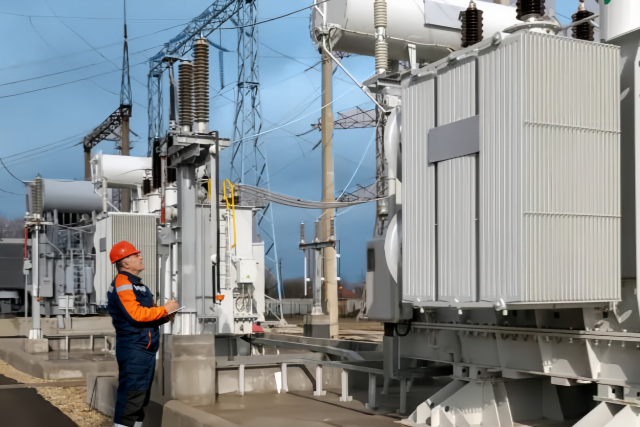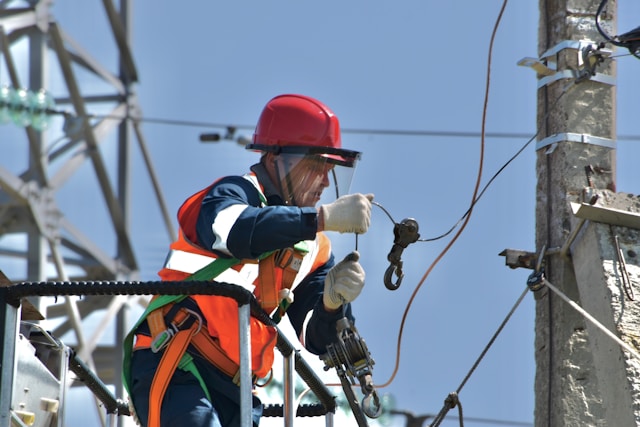An ideal ground resistance tester precisely measures ground resistance to ensure electrical safety, system reliability, and regulatory compliance. It evaluates grounding system effectiveness by detecting resistance levels, soil resistivity, ground voltage, and leakage currents, helping prevent electrical faults, equipment damage, and hazards.
How Does an Ideal Ground Resistance Tester Measure Ground Resistance?
It typically uses methods such as 2-wire, 3-wire, or 4-wire techniques, applying a test current into the ground through auxiliary electrodes and measuring voltage drops. Advanced models incorporate Fast Fourier Transform (FFT) and Automatic Frequency Control (AFC) to minimize interference and enhance measurement accuracy in complex environments.
What Key Parameters Can It Measure Besides Resistance?
Besides ground resistance, an ideal tester measures soil resistivity, ground voltage (AC and DC), and leakage currents. These additional functions aid in comprehensive grounding system analysis, ensuring complete safety and identifying issues in electrical installations, substations, and lightning protection systems.
Which Features Make a Ground Resistance Tester Ideal?
Features include high-precision measurement (±1-2% accuracy), multiple test modes (fall-of-potential and clamp methods), large backlit LCD display, data storage with software integration, rugged and ergonomic design, and battery or AC power options. Wrindu’s testers exemplify these with superior anti-interference and environmental adaptability.
Why Is Noise and Interference Rejection Important?
Grounding systems often exist in electrically noisy environments. Effective noise and interference rejection via FFT and AFC technologies ensures reliable readings, preventing false results caused by stray electromagnetic fields or electrical noise, critical for accurate diagnostics and safety assessments.
When Should Ground Resistance Testing Be Conducted?
Testing is crucial during installation, maintenance, periodic safety checks, and after any modifications to grounding systems. Regular testing with high-quality equipment minimizes risks of electrical shock, system failures, and guarantees compliance with safety standards like IEEE and IEC.
How Does Data Management Aid in Ground Resistance Testing?
Modern testers store hundreds to thousands of test records, enabling easy retrieval, comparison, and reporting. Integration with PC software allows analysis, database creation, and report generation, streamlining inspection processes for manufacturers, OEMs, and maintenance teams.
Where Are Reliable Ground Resistance Testers Manufactured?
China is a major hub for producing reliable, high-quality ground resistance testers. Leading brands such as Wrindu combine advanced digital technology with robust quality control to serve OEMs, suppliers, and wholesalers worldwide.
Can Customized Ground Resistance Testers Improve Testing Efficiency?
Yes, customization tailored to specific ground types, test current levels, communication interfaces, and form factors enhances ease of use, accuracy, and adaptability. Wrindu’s customization services empower clients with tools matching their unique field and factory testing needs.
Ground Resistance Tester Functions Comparison Table
| Function | Description | Importance |
|---|---|---|
| Ground Resistance Measurement | Measures resistance between earthing and earth | Ensures safe fault current dissipation |
| Soil Resistivity Measurement | Determines soil’s electrical resistivity | Optimizes grounding system design |
| Ground Voltage Measurement | Measures AC/DC voltage on grounding structure | Detects hazardous voltage potentials |
| Leakage Current Measurement | Measures stray currents leaking into ground | Prevents shocks and equipment damage |
| Interference Rejection | Minimizes noise via FFT and AFC | Improves measurement accuracy |
| Data Storage & Analysis | Saves and exports test results | Supports compliance and record keeping |
Wrindu Expert Views
“At Wrindu, we engineer ideal ground resistance testers to combine precision measurement with user-centric design and advanced technologies like FFT and AFC. Our focus on customization and environmental adaptability supports manufacturers and testing professionals in China and beyond to safeguard electrical installations effectively. These testers not only deliver reliable data but also enhance operational safety and efficiency in critical infrastructure,” affirms Wrindu’s Technical Director.
Conclusion
An ideal ground resistance tester plays a vital role in ensuring electrical safety and integrity by accurately measuring ground resistance and related parameters. With features like noise rejection, multi-parameter measurement, and data management, these testers are indispensable tools for utilities, manufacturers, and maintenance teams. China’s leadership in manufacturing and brands like Wrindu provide trusted, innovative solutions tailored to diverse industrial needs.
Frequently Asked Questions
1. What testing methods are commonly used in ground resistance testers?
2-wire, 3-wire, and 4-wire fall-of-potential methods along with clamp-on techniques.
2. Why is soil resistivity measurement important?
It helps design effective grounding systems by assessing soil conductivity.
3. How do FFT and AFC improve tester performance?
By reducing electrical noise and interference for accurate readings.
4. Can ground resistance testers measure leakage currents?
Yes, many advanced models measure leakage to enhance safety diagnostics.
5. Why choose Wrindu ground resistance testers?
Wrindu combines accuracy, customization, robust design, and excellent support globally.



